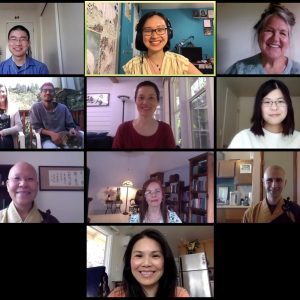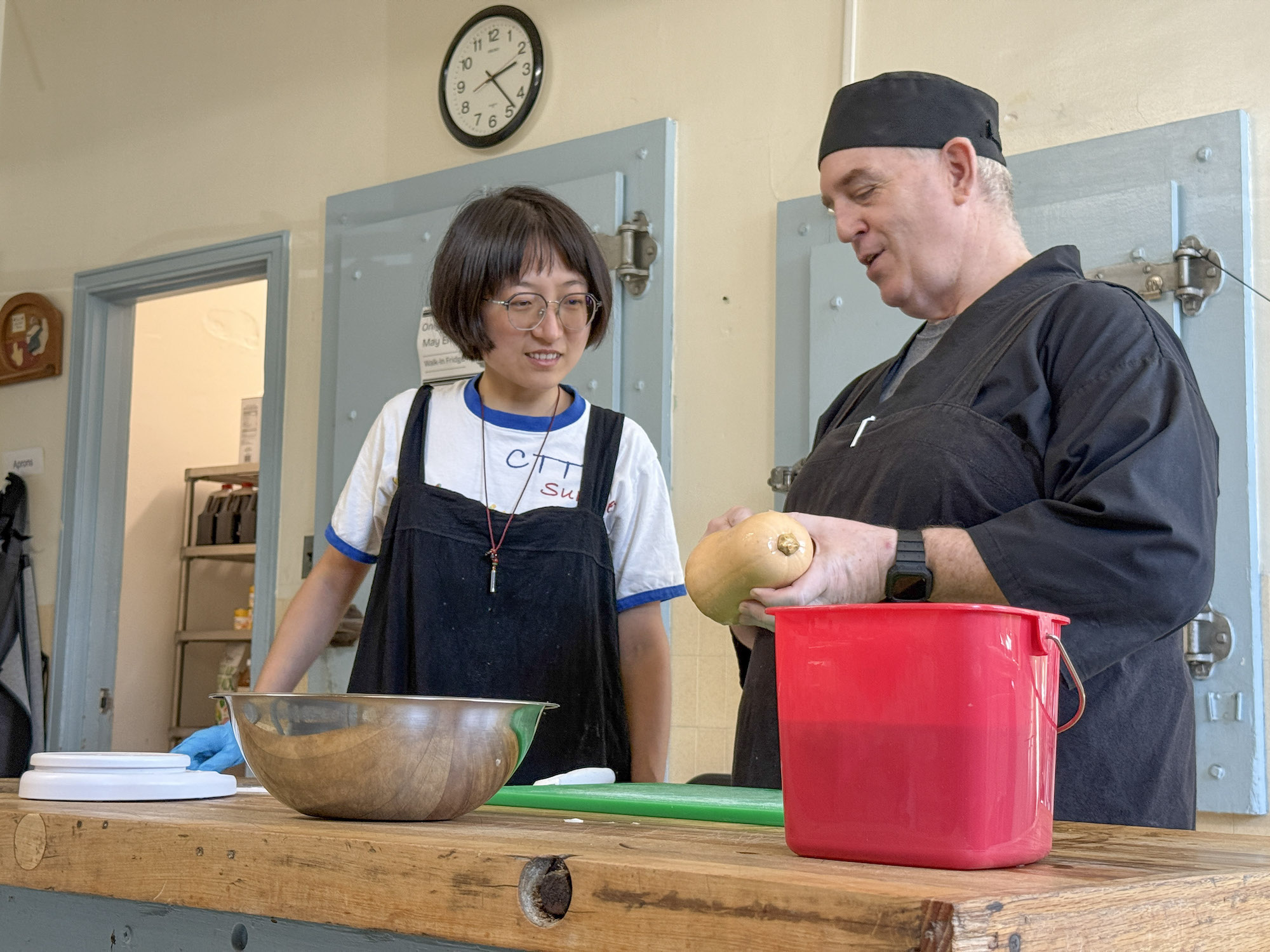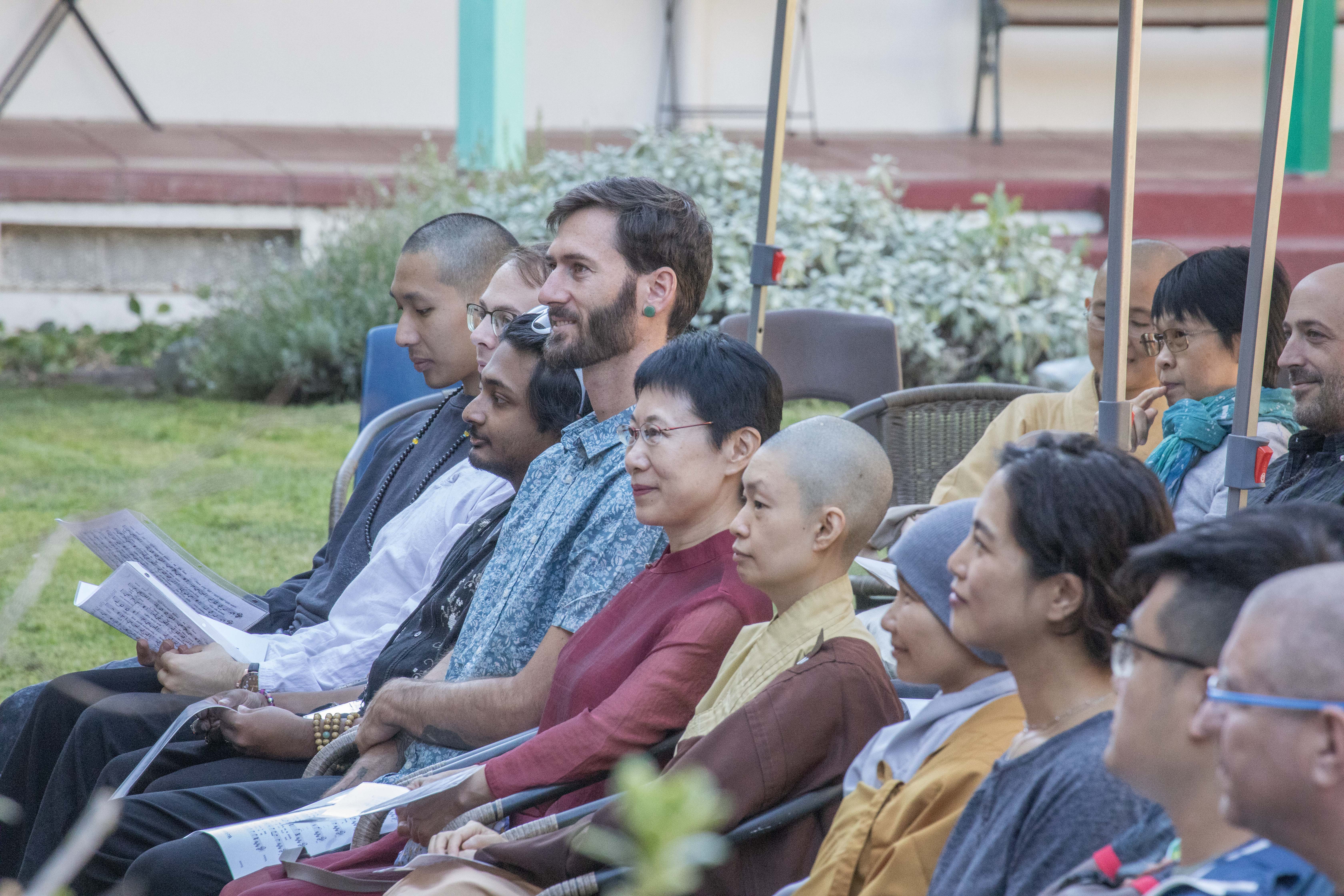
Class of 2020 Shares Gratitude and Their Hopes
On June 6, 2020, a special celebration for the class of 2020 was held via video conferencing. During the celebration, student representatives expressed their gratitude for their experiences at DRBU and their concerns and wishes for the world.
BA in Liberal Arts:
“One day, I was doing self-study and I heard laughing from other classrooms. I wondered, what was happening inside the classrooms that made everyone so joyful? Do they not feel pressure about their studies? I also heard laughing during the break. This is the character of DRBU: there is pressure, but at the same time there is also delight in every class. We laugh and we learn.This is a phenomenon I have never seen in any other school.”
– Bhikshuni Jin Jung
“Dear World,
“You seem to be in complete turmoil now, and my peers and I are being released into you… Yet I wouldn’t have it any other way. DRBU and our new mastery in asking the question, ‘why?’ has prepared us to positively contribute to any problem solving that is needed in our local communities and more general society. We have learned compassion and are ready to spread it. We have learned patience and are ready to use it. We have learned to question and be questioned and that this process is growth. We have learned to embody the change we wish to see. We have learned vigor and are ready to start this journey. DRBU has guided a group of students that are committed to bettering themselves and bettering the world. To all the people on this zoom call, I urge you to not turn your back on the people of this world. Do not turn your back on the people who have suffered tremendous losses from the coronavirus. Do not turn your back on your black brothers and sisters who are more likely to experience police brutality than any other race in the United States. Do not turn your back on the destruction of our ecosystems and all the lives they hold. Do not turn your back on the destruction of your home, this world, and the family, all the sentient beings, that live inside of it with you.”
– Kristina Zavaleta
MA in Buddhist Classics:
“Just under two years ago, I said that I came to DRBU to find self-love. I found what I was looking for simply by being reminded that self-love was within me this whole time. There is no one who grants it to me, nor someone who takes it away. Self-love is the ability to return to a calm, collected, and clear confidence within oneself amidst any situation. Self-love is practiced thought-by-thought, and is in every form, an openness of space – a relaxed, kind, and flexible approach to learning for oneself through deep listening, asking questions, and lived experience. It is devoid of arrogance, judgmentalism, and stubbornness, even when experiencing discomfort or when views are challenged. Self-love is inseparable from forgiveness, and naturally flows beyond one’s own person. That being said, this is for anyone who needs it right now: I accept you exactly as you are, and I believe in you with my whole heart. You can do it. I care about you, and you matter to me.
“This mentality, called self-love, loving-kindness, or another word that works for you, is precisely the mindset we can all work towards now to ensure that everyone in the world is able to heal for the better. One teaching that clicked in my final semester is that: ‘There is no nirvana outside of the conditions we are in right now.’ This means that even if it seems like there is nothing but intense suffering in every direction, this is exactly the place to start, because there isn’t any other place to. It’s the same way that we have learned anything for ourselves: by facing what is uncomfortable and painful with open space and making progress from there.”
– Xuan Ooi
“Whether it is through the study of classical texts, philosophical discourses, or sacred documents, the whole program and model of education at DRBU have a clear goal: to bring us back to the most essential questions. What does it mean to have a meaningful life? What does it mean to be alive in a true sense? And it is a task for everyone to find the answer to these questions. DRBU embodied something that Pierre Hadot mentioned about ancient philosophy: ‘It did not consist in teaching an abstract theory- much less in the exegesis of texts – but rather in the art of living. It is a concrete attitude and determinate lifestyle, which engages the whole of existence.’
“We were learning how to reconnect with ourselves, deeply examine our emotions, thoughts, impulses, be in-tune with ourselves, and see how everything—such as theory and practice, body and mind, ourselves and others, humans and the natural environment– correlates and interpenetrates. We can’t find any aspect of our life apart from our study. Classical texts become our medical textbooks to help us heal, return to harmony and tranquility, quietness and health. This transformation begins in our hearts, extending from the classroom to the cities, nation, and the world…Thank you all for allowing me to receive one of the best gifts that I have gotten in my life.”
– Bhikshu Jin Wei
“We have stayed together, growing stronger in our knowledge, understanding, beliefs and practices. We’ve progressed in our commitment to our cultivation and to our deep transformational processes, trying to become agents of change in the external world too. We have comprehended the importance of being wisely, generously, and compassionately there for others…Especially now, being the world so troubled and us so unwillingly separated…We can always be True Cultivators, wherever we are. Somos los capitanes de nuestra esencia. Somos los dueños de nuestro destino. Muchas gracias a todos (We are the captains of our essence. We are the owners of our destiny. Thank you very much to all.)”
– Lupita Vives
“…Then we turned to Comparative Hermeneutics, and studied discourses of Western philosophers. Here I would like to share a quote from Existentialism is a Humanism by Jean-Paul Sartre. He says, “Life itself is nothing until it is lived, it is we who give it meaning, and value is nothing more than the meaning that we give it.” This saying means a lot to me, especially in today’s deteriorating environmental issue. Each individual should take responsibility for this world’s wellness.”
– Bhikshuni Jin Tyan
“As a student at DRBU the past two years, I constantly felt that I was in the right place, at a right time, with the right people, doing the right thing regardless of whether I had a good day or a bad day. The texts we read, the shared inquiries, our teachers who embody the values that they teach, the daily spiritual practices, and community services all brought me back to the source of joy and contentment that is within us.
“As DRBU students, we get to experience the fullness of life through study, practice, and service. Master Hua, the founder of our university said, ‘Education is without beginning or end. There is not a single location that is not a place of learning, and there is not a single moment that is not a time for learning.’ I think we truly experience the essence of these words by living an integrated life through our education at DRBU. In the past two years, I learned as much about the world from the classrooms as from the monastery; and, I learned so much about myself not only from writing an essay, or delivering a presentation but also from cleaning bathrooms, or washing pots and pans in the kitchen.”
– Sophie Wu
Graduate Certificate Program in Buddhist Translation:
2020 Graduates: Bhikshuni Jin An and Bhikshuni Jin Shao
“In the class, as the students have discussions regarding different translation topics or articles, each of us was stimulated by another’s insights and opinions so our minds are not confined by our own thoughts. When we work together on a translation task, we challenge each other, learn from each other, and always appreciate each other’s participation. Sometimes we had to be very patient as the final decision of a word choice might not be what we wanted to be. This way of study makes everyone in the class a student and also a teacher. We not only learn from one instructor but also from all the other classmates. I believe this makes DRBU a very unique university.
“To translate Buddhist scriptures is a way to build up a bridge between the Buddha and the readers, and a translator is a messenger who carries the Buddha’s words to help people become awakened according to their own conditions. When we read, analyze, and try to understand the sutra text to the best of our knowledge, we are also in a process of self-awakening. In Buddhism, we always say, ‘to help oneself is to help others, and to help others is just to help oneself.’ I hope the translation program will become greatly developed so that more and more people can share the Dharma joy in the study and the Buddha’s teachings can be widely translated into more languages.”
– Bhikshuni Jin An


